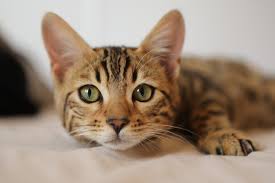We are all living through unprecedented times of the COVID-19 pandemic. What is the impact of COVID-19 on our animals? Let’s start by saying that we don’t have full knowledge and a clear picture of what COVID-19 does to humans? How? Why? What are the exceptions? We do learn more and more about the Coronavirus daily and what is the impact on humanity. We worry about our loved ones and about our pets as well. Scientists are working hard, trying to understand the virus and what it does to humans and animals. The World Organization for Animal Rights (OIE) and the World Health Organization (WHO) keep the medical community and public informed during these difficult times.
Can Animals Contract COVID-19?
Scientists believe that the virus likely started in animals specifically bats from a meat market in China. Most viruses transfer from animals to humans as Dr. Peter Ben Embarek from the WHO explained:
“(Coronavirus) jumps from an animal we usually raise for foods or hunt for foods. And previous examples are Ebola, the MERS virus in the Middle East,(and) the SARS virus–all jumped to humans from food in places where we raise animals and get too close to some wild animals in our search for food.”
Dr. Embarek is an expert of food safety for the Department of Food-Borne Illness and Zoonoses at the WHO headquarters in Geneva, Switzerland.

Can Animals Contract COVID-19?
Should I have contact with my pet if I have the coronavirus disease?
When you take into consideration how coronavirus developed it’s not out of the realm of possibility that animals including our pets could catch the virus just as humans do. We saw examples of it in the big cat population at the Bronx Zoo where there were confirmed cases of cats who tested positive for COVID-19.
Dr. Casey Barton Behravesh from the CDC spoke about the possibility of the virus being transmitted to their pets with the Associated Press saying:
“We don’t want people to be afraid of pets. There’s no evidence that pets are playing a role in spreading this disease to people.”
The CDC is recommending social distancing for pets which means that cats should stay inside, and dogs should be at a safe distance from other dogs and humans as well.
The examples of animals being infected in New York leaves us asking more questions about how the virus spreads. For example, in New York, an infected cat who had the virus did not transmit the virus to its owner. However, scientists and experts recommend staying safe and being cautious when it comes to animals and the possibility of them getting the virus. Take care of your pets as you would take care of family members (as you probably already do). Keep them from harm so they can stay safe and you can stay safe as well.
We are learning new things about the virus daily. Get your information about COVID-19 from reliable sources and follow the guidelines regarding your pets.
What are the Main Guidelines for Animals?
When it comes to pets, here are the main guidelines:
- There is a possibility that some animals can become infected through close contact with humans who are infected. Further evidence is needed, for experts to determine if animals and pets can spread the disease to humans.
- The main driver of the disease is human to human transmission.
- It’s too early to say if cats can be the intermediate host in the transmission of COVID-19.
You can find more information on this on Frequently Asked Questions on the World Health Organization website.
Now, it seems that experts do not have much information but, in the meantime, remember to stay safe.




